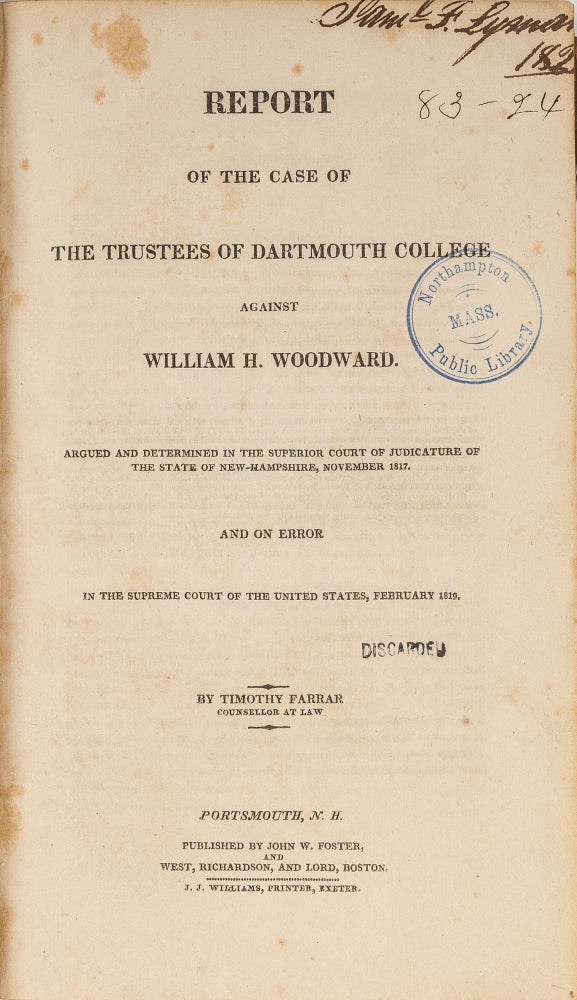Report of the Case of the Trustees of Dartmouth College Against...
First Report of the Landmark Dartmouth College Case [Trial]. [Dartmouth College Case]. Farrar, Timothy [1788-1874], Reporter. Report of the Case of the Trustees of Dartmouth College Against William H. Woodward. Argued and Determined in the Superior Court of Judicature of the State of New-Hampshire, November 1817. And on Error in the Supreme Court of the United States, February 1819. Portsmouth, N.H.: Published by John W. Forster, And West, Richardson, And Lord, Boston, [1819]. [iv], 406 pp. Octavo (9" x 5"). Later nineteenth-century three-quarter calf over marbled boards. Moderate rubbing to extremities with wear to corners, hinges cracked. Moderate toning and light foxing to text. Early owner signature and annotation to head of title page, interior otherwise clean. Ex-library. Bookplate to front pastedown, two small inkstamps to title page, residue from card pocket to rear pastedown. A solid copy. $500. * First published report. This is probably the most important American case concerning the contract right of corporations. The New Hampshire legislature passed a bill in 1816 that revoked Dartmouth College's original charter and converted the college from a private to a state institution. The college challenged the constitutionality of this act in the state Supreme Court without success, but the U.S. Supreme Court reversed the state's decision in a landmark opinion based on the contract clause of the Constitution. "By construing the contract clause as a means of protecting corporate charters from state interventions, Marshall derived a significant limitation on state authority. As a result, various forms of private economic and social activity would enjoy security from state regulatory policy. Marshall thus encouraged, through constitutional sanction, the emergence of the relatively unregulated private, autonomous economic actor as the major participant in a liberal political economy that served the commonwealth by promoting enlightened self interest" (Konefsky). It also served investors, who were newly reassured that the state could not easily alter the terms on which they had staked their capital, and American enterprise flourished as a result. Farrar's comprehensive report contains all material related to the case, including the arguments of Webster and Wirt and the opinions of Chief Justice Marshall and Justices.
Price: $500.00
Book number 64736

